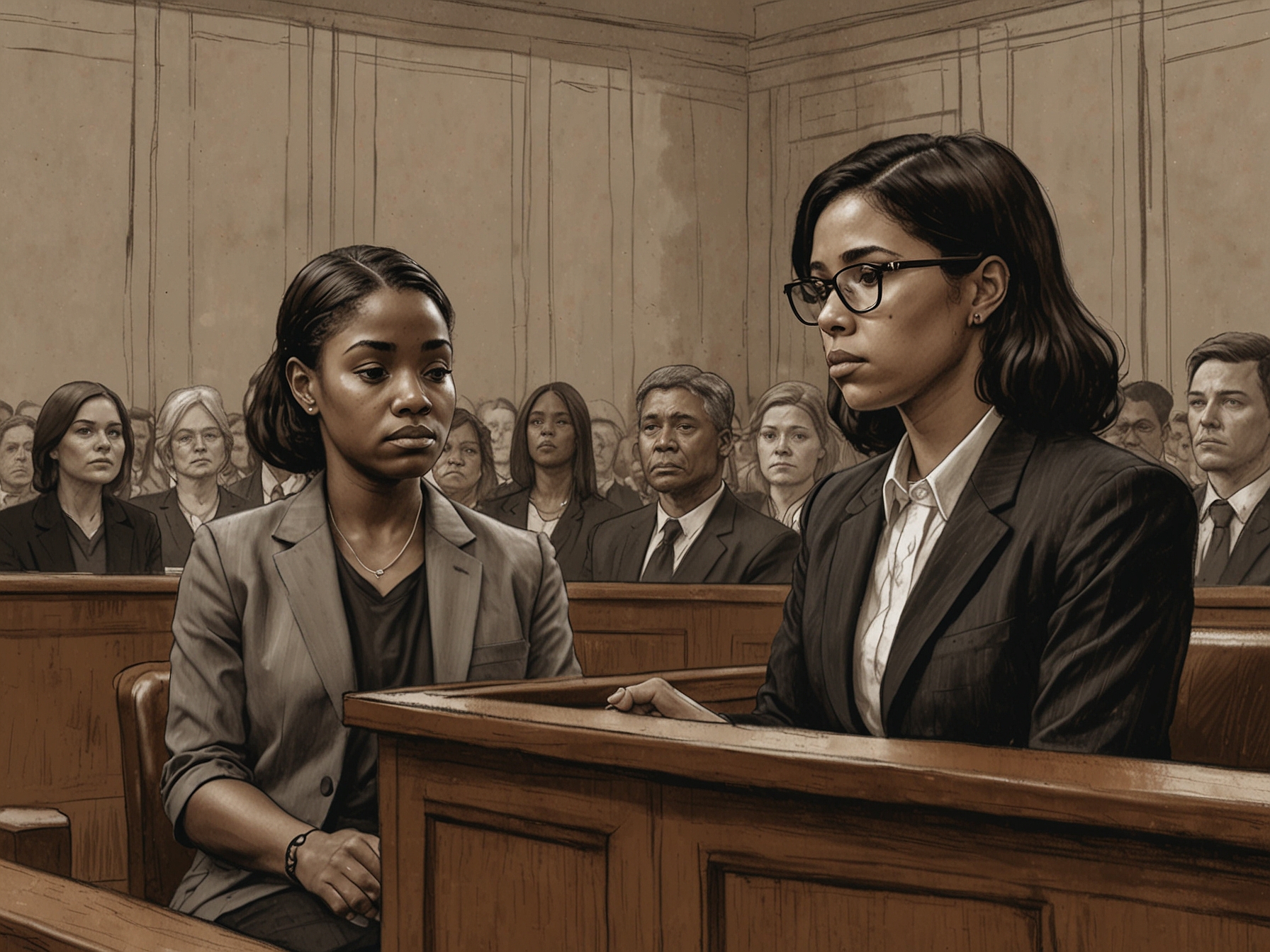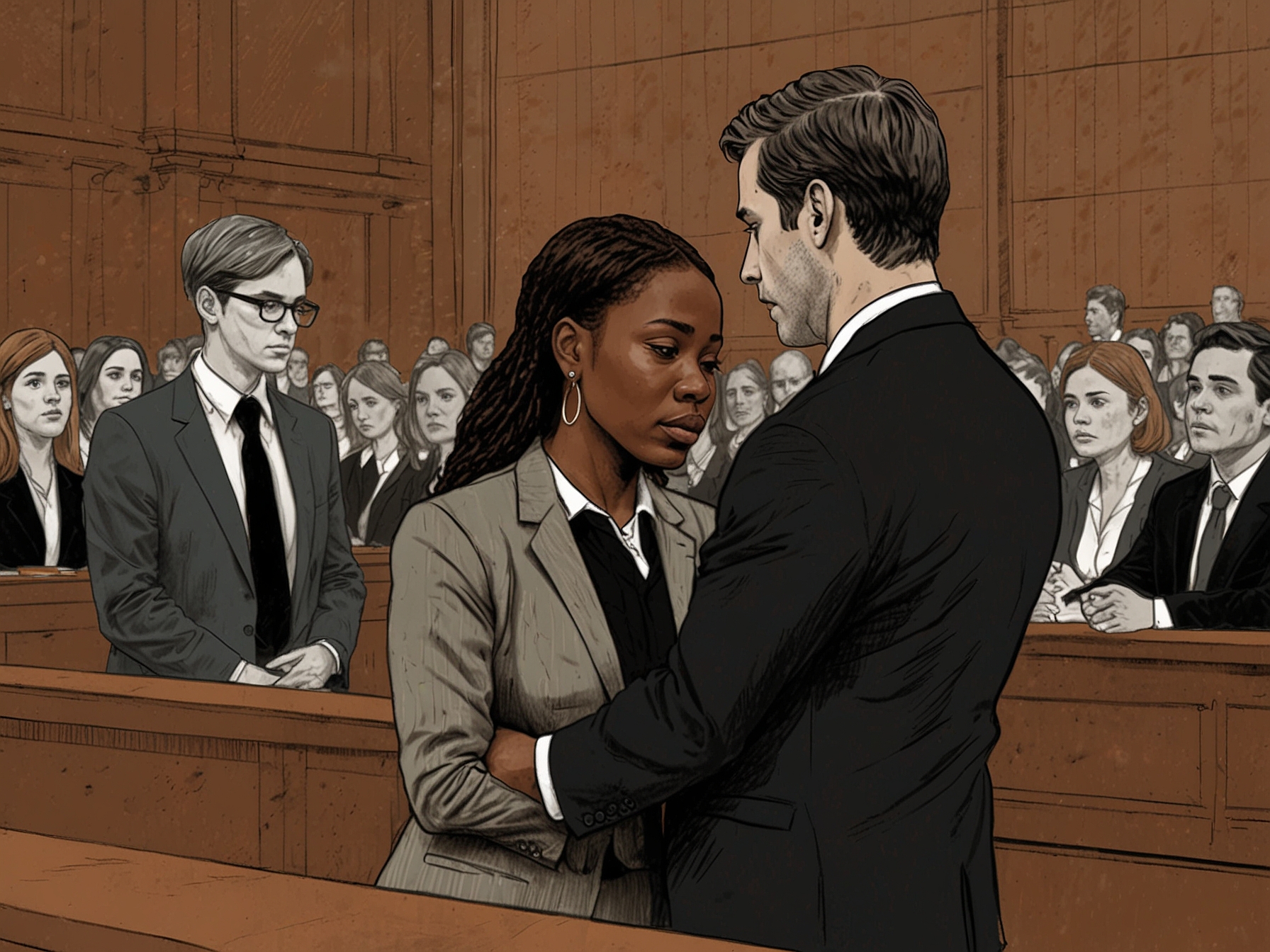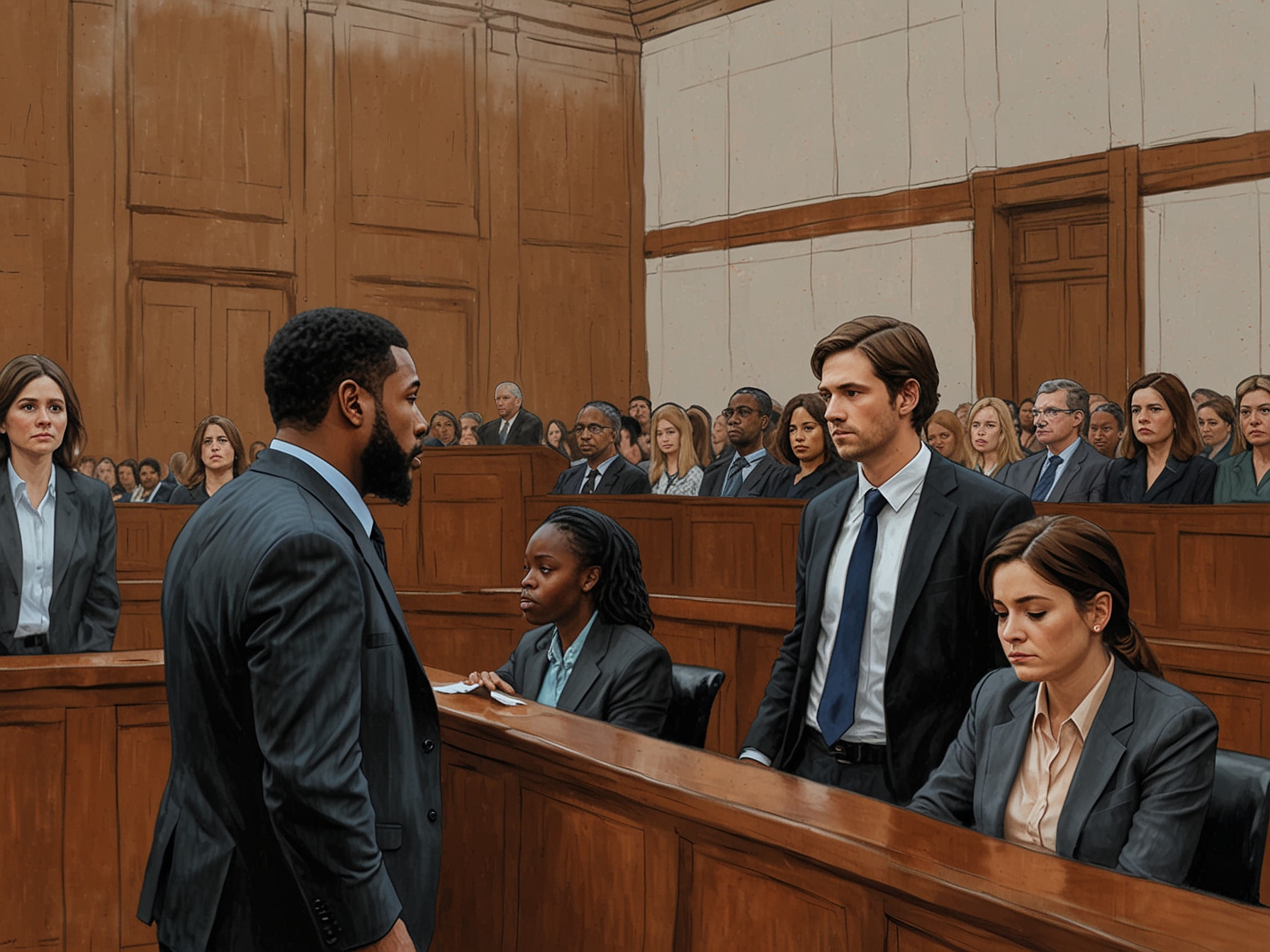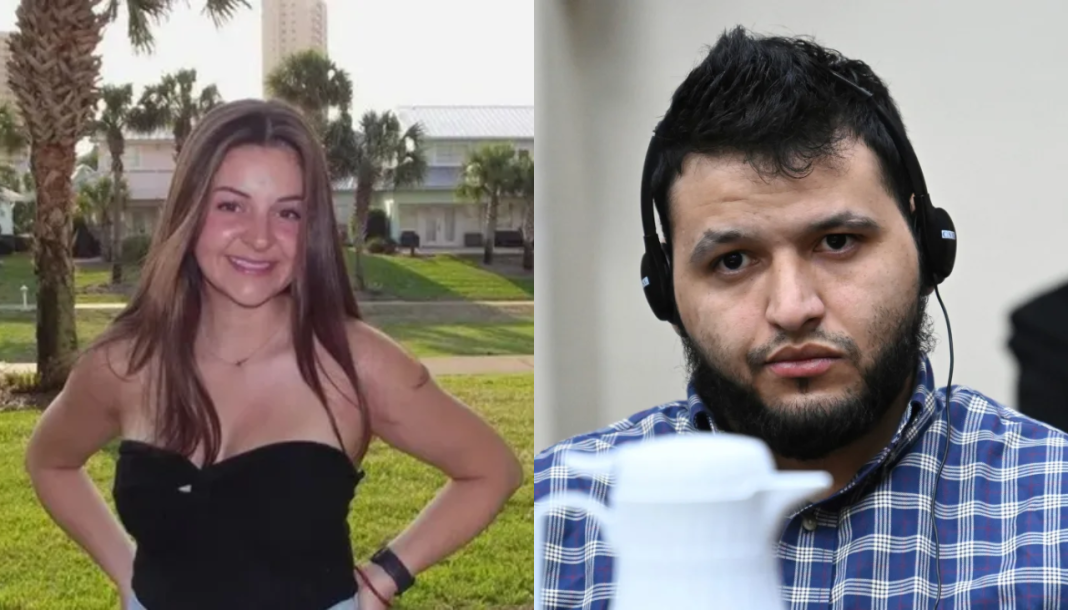Loud sobs echoed in the courtroom Friday. An undocumented migrant stands accused of killing college student Laken Riley. The atmosphere was thick with emotion as graphic footage revealed the chilling aftermath of a crime that shocked a community.
Jose Antonio Ibarra, 26 years old, faces serious charges. Prosecutors claim he “went hunting for females” at the University of Georgia. Such a statement leaves you wondering, how does one become a predator on a campus so vibrant?

Riley, just 22, was a nursing student at Augusta University. She went for a jog, a simple activity turned horrific tragedy on February 22. This incident has not only ripped apart her family but also strained communities grappling with deep social issues.
As prosecutors took their turns, they painted a vivid picture. Sergeant Kenneth Maxwell’s testimony revealed a shocking scene. He gasped as he recounted finding Riley’s body; details that linger in the air like a bad dream.
“I wish every moment could be erased,” he admitted. The body camera footage played in court was jarring. Many in the gallery covered their faces, overwhelmed by grief. What must it feel like to bear witness to such a heartbreaking moment?

Ibarra’s trial is not merely a legal proceeding; it has become a focal point for discussions on crime and immigration. In a world saturated with debate, how do we find common ground? The prosecution claimed Ibarra left forensic evidence, including his DNA, under Riley’s fingernails. This evidence tells a story—a story of struggle.
Prosecutor Sheila Ross made powerful statements. “Laken fought. She fought for her life,” she declared. Such words resonate deep, forcing us to ponder—what if we were in her shoes? Would we fight, too?
The timeline of events fanned the flames of fear and frustration. Data from Riley’s smartwatch showed a dire struggle that lasted nearly twenty minutes. If only more awareness existed around personal safety, perhaps tragedies could be prevented.

Across the courtroom, Riley’s parents listened intently. How do they process this pain? Prior to her death, Riley had excelled academically. Just weeks before, she received her honorary white coat—a symbol of her future in nursing, a career dedicated to caring for others.
With all this knowledge laid bare, Ibarra’s defense came to life. Attorney John Donnelly insisted the evidence presented was circumstantial. He questioned the validity of the DNA methods used against his client. “If the presumption of innocence is respected,” he argued, “there is not enough proof.” But one has to wonder, can true justice be achieved in a trial so charged with emotion?
The trial’s details unearthed a haunting narrative. Witnesses described the heart-wrenching discovery of a jacket in a dumpster. Was it a sign of desperation, a final act of cowardice? This jacket carried swirling tales of both Riley and Ibarra, woven together in a tragic dance.
The courtroom was abuzz with anxiety. “We lost one of the brightest lights,” a friend remarked at a vigil. You can feel how this tragedy has sent shockwaves through college campuses everywhere. Just how safe are we in spaces we deem familiar?
Riley’s community has clung to memories of her spirit. Students at the University of Georgia have become more alert. “It’s a lesson learned the hard way,” one pharmacy student shared. How do we balance caution with the freedom to live our lives?
Political rhetoric soon wrapped around the tragedy. Both sides of the aisle seized Riley’s heartbreaking story for their causes. Can a single murder reflect an entire system in crisis? Voters grapple with this question as they head into elections.
As the trial unfolds, Ibarra’s fate rests in the judge’s hands. Will the outcome of this trial spark necessary conversations about safety and immigration? Or will it merely become another headline in our chaotic news cycle? Each moment holds potential to shift perspectives.
Riley’s legacy, intertwined with the fight for justice, calls for reflection. The tragedy is a reminder of the fragility of life. In the face of such devastating loss, we must consider our role in fostering safer environments for all.
The discussion doesn’t end in the courtroom. It flows into homes, classrooms, and political arenas. How can we transform grief into action? Only time will tell.




